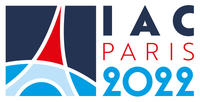›Statistical Challenges in 21st Century Cosmology (COSMO21)
Rationale: During the past 20 years there has been a resumption of a dialogue between astronomers and statisticians. This dialogue has been fruitful and has been the origin of a new discipline that is now widely called Astrostatistics. The main tools for comparing theoretical results with observations in astronomy are statistical. However, the development of huge astronomical databases presents challenges of scale, and has initiated an active use of newly-developed statistical techniques in astronomy, notable examples being sparsity and compressed sensing.
The meeting is especially timely from the point of view of cosmological surveys, where the size makes application of a fully Bayesian analysis computationally extremely demanding, especially in the realm of model selection. Pan-STARRS will have a complete survey of 3π steradians of petabyte size; the Dark Energy Survey and the VST KiDS surveys will be well underway presenting similar difficulties in the data analysis. Moreover, the cosmological community will be preparing for LSST and for Euclid, a survey of a large fraction of the sky at an angular resolution close to that of the Hubble Space Telescope. Wide-field spectroscopic cosmology surveys of will be targeting over 10 million objects with a spectral resolution of 5000, with the SKA precursors will be grappling with data challenges which currently are unsolved. These examples also highlight the big current role and even bigger future role of archival data in astrophysics research.
This meeting offers an opportunity to show-case techniques and methodologies that will have to be used by the wider community to use these archival data.
Track this event on your Apple calendar














 Greece
Greece